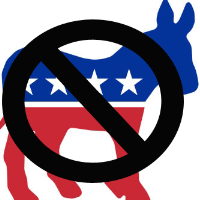Democrats May Be Without a Candidate for Controller in November

Californians haven’t elected a Republican as State Controller since Houston I. Flourney got the nod in 1970. Flourney ran for governor in 1974 after completing his second term as controller and was edged out by a young up-and-comer, Jerry Brown, in a big year for Democrats, just 90 days after the impeachment of Republican President Richard Nixon.
Next November, California voters might not have the option of voting for a Democrat for controller after a down-to-the-wire primary contest that ended without closure Tuesday night.
The state’s new primary system lets the top two vote getters advance to the general election regardless of whether they are in the same party. This year, the four top vote getters received pretty equal support.
Voters approved the new system four years ago out of frustration over legislative gridlock and partisan wrangling that many blamed on ineffective, unresponsive political leaders in Sacramento. That assessment ignores what could be considered at least equal contributors to the state’s inability to please the electorate.
Constitutional restrictions require super-majority votes in the Legislature to raise taxes, pass emergency legislation, override gubernatorial vetoes and put constitutional amendments on the ballot. It also doesn’t help that the state’s political system is awash in special interest money with a level of transparency among the worst in the nation, and that voters are generally apathetic and ill-informed.
It is not clear on how having just two Republicans running for Controller would address the problem.
Republican Fresno Mayor Ashley Swearengin and former California City Mayor David Evans ran one-two in the race over a couple of termed-out Democratic Party heavyweights all night long. But as the last 2% of the vote trickled in, Democratic Assembly Speaker John Pérez slipped into second place. Board of Equalization member Betty Yee, a Democrat, finished fourth. Term limits are another fan favorite among Californians attempting to avoid responsibility for choosing their representatives.
But by the end of the evening, with 99.4% of the vote counted, there were only a few hundred votes separating Evans and Pérez and no one was conceding defeat.
The state controller is the chief financial officer of California. He or she administers the state budget, dispensing and accounting for all of the state's payments, and audits state spending. California's controllers have often been central players in the state's budget negotiations, determining who gets paid and how, as the funds authorized for use each year dwindle.
It was the only partisan race for statewide office that ended up without representation by both parties in the November election.
The ballot in this blue state is littered with Assembly and state Senate races where the top two vote getters will be Democrats, and Republicans will be able to hide their candidates and policy preferences from general election scrutiny.
The top-two system may also have helped spare Republicans the spectacle of having Tea Party favorite Tim Donnelly brandishing weaponry and speaking ill of immigrants in a general election race against Governor Brown. Anecdotal evidence indicates, and exit polls may eventually confirm, that Republican Neel Kashkari benefited from cross-over Brown enthusiasts who figured their candidate was a lock for the November runoff and didn’t want to see Donnelly on the ballot.
Or maybe it was the reverse and Brown voters crossed over to support Donnelly in an attempt to put an extreme conservative on the ballot and draw more Democrats to the polls in November to support other causes.
Either way, the top-two primary introduced a new level of gamesmanship into electoral politics that already suffer from a lack of focus on policy and governance. The new rules and the thrill of uncertainty they introduced, however, did nothing to energize the electorate.
Turnout for the election was near historical lows, a now-regular occurrence in primaries.
–Ken Broder
To Learn More:
Democratic Incumbents Cruise, but GOP Sees Hope (by Justin Pritchard, Associated Press)
Poor California Primary Turnout Explained: Contented People Stay Home (by Mark Z. Barabak, Los Angeles Times)
When It Comes to Polarized State Legislatures, California Is Unique (by Ken Broder, AllGov California)
- Top Stories
- Controversies
- Where is the Money Going?
- California and the Nation
- Appointments and Resignations
- Unusual News
- Latest News
- California Forbids U.S. Immigration Agents from Pretending to be Police
- California Lawmakers Urged to Strip “Self-Dealing” Tax Board of Its Duties
- Big Oil’s Grip on California
- Santa Cruz Police See Homeland Security Betrayal in Use of Gang Roundup as Cover for Immigration Raid
- Oil Companies Face Deadline to Stop Polluting California Groundwater





